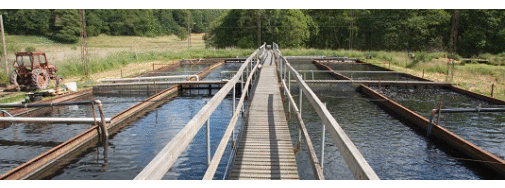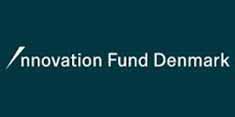Cultured fish for human consumption
PROJECT IS COMPLETED
PERIOD: 2014 - 2018
The project ensures that low-value products (fish feed) are converted into healthy food through sustainable aquaculture and that waste products from the production of bioethanol in Brazil are reused as valuable bioactive substances.
Globally, aquaculture is the fastest-growing animal food sector and today half of the world´s consumption of fish originates from aquaculture (FAO Report 2010).
Aquaculture facilities in São Paulo and Denmark differ with respect to fish species and breeding practices but issues that negatively impact fish production are similar at both locations:
- Intensive fish breeding enhances the risk of diseases caused by bacteria, viruses and parasites.
- Several fish infections have zoonotic potential and may affect human health.
- Microbes produce off-flavours that penetrate the fish and make them unattractive.
- Dense fish stocks may promote the growth of fish-killing toxic microbes by eutrophication.
In this interdisciplinary project, we will apply state-of-the-art methods to address these issues.
The scientific aim of this project is to improve fish production by addressing and providing solutions to current impediments to the aquaculture industry.
Specifically, we will improve the quality of Nile tilapia produced in cages in hydroelectric reservoirs in São Paulo and of rainbow trout from systems with water recirculation in Denmark. To do so:
- Fish health will be monitored by classical and molecular approaches and will be improved by modulation of the innate immune responses by bioactive β-glucans.
- Water quality parameters, i.e. bacterial communities, and toxin- and off-flavour producing microbes, will be related to the health and growth of the fish.
Based on these findings, general health control programs will be proposed for Danish and Brazilian fish farmers.

- Department of Plant and Environmental Sciences, University of Copenhagen
- Department of Health and Medical Sciences, Aalborg University
- DHI Water Environment Health, Denmark
- Universidade Estadual Paulista, Brazil
- Aquaculture Centre of São Paulo State University, Brazil
- São Paulo State Agency for Agribusiness Technology, Brazil
- University of São Paulo, Brazil
- São Paulo Fisheries Institute, Brazil
Funded by:

Project: IMProved quality of cultured fish for human CONsumption - IMPCON
Period: April 2014 - January 2018
Grant donor: Innovation Fund Denmark
FOOD grant: DKK 191,200
Total budget: DKK 4,925,000
Contact
 Mikael Agerlin Petersen
Mikael Agerlin Petersen
Associate Professor
Design and Consumer Behavior
Fact box
The bilateral research involves the mutual exchange of scientific knowledge, training of PhD students and acquisition of “hands-on” competences to produce better fish products in both regions.
